|
by Glenn C. Koenig, webmaster at Town Wide Mall
The official results of the votes on all nine articles are posted on the Town Clerk’s web page as a PDF document: https://tinyurl.com/TWMLink04 When I talked to Town Clerk Dianne M. Reardon this afternoon, she reported that 786 voters and 32 guests were recorded as having entered the meeting, making it one of the most well attended in many years. The main reason for the large attendance was Article 3, a “Borrowing Authorization Through Debt Exclusion.” This is the first of two major steps to finance the building of a new Green Meadow Elementary School. As this project has seen wide publicity throughout the year leading up to the meeting, there was great interest among the public to participate in the vote on this article.
Once the meeting got underway, just before 8 PM, the first two articles were discussed and voted on by around 8:20. Then it was time for Article 3. The amount to be approved by the meeting listed in the article, $83,600,000, is the largest sum for a building project in the town’s history, so it's easy to see why there was so much interest in attending the meeting.
The comments went on for just under an hour. In general, most people spoke in favor of a Yes vote. More than one person thanked the committee for all its hard work. One person pointed out that a new building would better retain teachers and students, a current issue in schools in general. Others stressed the availability of funding from the MSBA, which the town would stand to lose if the project was postponed or reverted to a renovation of the current building. Others reiterated various problems with the current building, including remarks from one person who works there on staff. A few others were more critical. One pointed out that when interest was added to pay back the $54 million in bonds during the 30 years, the total payback would amount to nearly $100 million. He also asked why the meeting wasn't offered more options, besides the final proposal from the GMSBC. Another person objected to a comparison, made earlier, with building projects in Belmont and Watertown, explaining that Maynard had a smaller population and significantly lower average income than in either of those towns. She said the building was "just too expensive" and suggested that perhaps $50 million would be more appropriate. After all the comments concluded it seemed clear that the measure would likely pass, which it did. Because the vote is a prerequisite to an increase in property taxes beyond the normal 2.5% limit, a 2/3 majority was needed, but the final tally, 695 Yes, 67 No, was well over the necessary margin. The term "... Through Debt Exclusion" in the article's title pertains to the fact that the taking on of this debt is "excluded" from (is allowed to exceed) the normal 2.5 % annual tax increase amount. Property tax increases for property owners would be between $500 and $1000 per year, approximately, depending on the town's official valuation of each individual property, if the measure is voted favorably in November's general election. Of the remaining articles, most were passed within a few minutes, but two received more discussion. Article 4 was submitted by the Maynard Senior Center Focus Group, who asked for money to enter into a limited term lease in order to move the Senior Center from it's current cramped quarters into leased space for the next five years, until a more permanent location could be found. However, the article as submitted had two technical errors, so the Finance Committee did not recommend passage (see story: "An Uphill Struggle" in the news feed, here on Town Wide Mall). The vote was in favor, however, as a show of support for the Senior Center to be provided with new quarters, even though the money could not be appropriated at this time. Articles 6 and 7 were related to the acceptance of three roads in town that are currently private ways, Fletcher Street, Heights Terrace, and Allan Drive. "Acceptance" means that the town would assume ownership of the roads (whereas they are currently owned jointly by the property owners that border them) in order to bring them up to public road standards and maintain them in the future. A number of residents spoke of the deteriorated state of each of the three, and how gaps in the pavement are a risk to pedestrians, bicycles, and vehicles, and how it's difficult or impossible to operate snow plows, as well as safe travel for emergency vehicles. Responding to a question, Public Works Director Justin DeMarco stated that once the roads were accepted, they would join the list of all public roads in town, currently being evaluated for the severity of their condition. The department attempts to prioritize repairs by addressing the roads in the worst condition first. This means that acceptance would not necessarily result in an immediate reconstruction because other public roads may have greater priority for now. As to the cost, the town receives a fixed amount of money from the state each year under a program known as "Chapter 90," so a favorable vote on the articles would not impact the town budgets. These two articles were discussed and voted on at the meeting together, which is why the Clerk's report of the meeting results shows exactly the same vote (277 Yes, 3 No) for both.
There were also forms available by which voters may request a mail-in ballot for the town wide election on Tuesday, November 7th. That election is being held for the single purpose to see if voters will approve the debt exclusion that would raise taxes to build the Green Meadow School, as a follow up to the vote on Article 3 at the meeting last night. Those forms are also available at the Town Clerk's office, at Town Hall, during normal hours. Of course, voting in person will also take place that day, at the Fowler School auditorium. The last day to register to vote in this election is Saturday October 28th at 5 PM. Comment First, let me say, in the interest of full disclosure, I was the person who mentioned the total cost of borrowing for Article 3 and I was also the person who asked why we at the meeting weren't offered more options (besides just those of funding a new building versus renovating the existing one). I was also the one who asked the DPW director about Articles 6 & 7. I was doing so as a citizen and a voter, whereas much of the rest of the time I was there as a reporter, trying to take notes as best I could, to prepare for publishing this report. While I was there, I pondered two things on which I wish to comment here. Town Meeting pros and cons At the meeting, I dropped off a few copies of my "Introduction to Town Government" essay (titled, "An Informal Guide to Town Government and Town Meeting"). There is a PDF copy of this document here on the Essays page on this web site,, or at this link: https://www.townwidemall.com/essays.html I wrote this while in a contemplative mood; so it's something to sit back and read through at your leisure, rather than something to skip through to pick up a few pointers. Pros & Cons: When meeting in a hall, in person, it's possible to get a "sense of the meeting" through the mumbled words and informal sounds and gestures that people make while sitting in their chairs. This is not possible in a "virtual" meeting (held over Zoom, for example), where anyone not currently speaking is expected to be muted. At an in-person meeting, one can lean over and chat with the person sitting next to them or in the row in front or behind them. Online, that's not possible, unless one is texting others on the side while the meeting is up on screen. Participating in a "virtual" meeting requires a modern computer with up to date software and a high speed internet service, which excludes some folks without the means or perhaps the skills to have that facility. I could go on, but suffice to say there are some very real advantages and yet very real disadvantages to requiring everyone to be physically present on a certain night at a certain time and sit for hours during debate and voting. There have been a number of proposals and suggestions recently, but little has changed as of yet. About Article 3 I have written about some of my problems with this Article and the means used to promote it. ( See The Big Vote - a story I recently published).
Last night I brought two speeches to read out loud at the meeting. I only had time to read an edited version of one of them. I didn't get up to read the second one because I knew that the vote would be "Yes" and I didn't want to waste any more of anyone else's time in the meeting. But of the many problems with the proposal, here is what I had to say about at least one of them: "This is not just an issue here in Maynard. Other towns are facing similar questions. This trend for increasingly expensive school buildings will eventually run aground. A new direction must be found to support a quality learning experience at a much lower cost. This proposal is not just about a building. Even the proponents of the new building have mentioned many times that we need it to "meet today's educational standards." I don't doubt that. But clearly whatever educational standards there are now, they are only for the present. Educational methods are a moving target. They have changed often in the past and are bound to keep changing as we go forward. As this happens, even a new building will soon "no longer meet current educational needs," but to what extent is anyone's guess. Given the considerable upheaval in the education industry these days (teacher strikes, teachers resigning ... rather than teach to the test, lack of bus drivers, rancorous school board meetings related to curricula, banning of books, etc.), it's entirely possible that the education industry in general will change radically, just within just the next few years. Therefore, I consider the argument to build a building to last the next 50 to 75 years ... as an empty promise. Sure, the steel, bricks, and glass might last that long, if we manage to find the funds for proper maintenance (which, itself, is up to question), but its use for education, whatever that becomes, cannot be guaranteed. Perhaps it's time to stop and seriously consider what we'd like to change about the education industry is run right now, before we put our money down. If we vote to spend this money, the tide of change may come along and render our debt an unfortunate error, in hindsight." It's true that, after I wrote this, voters at the meeting voted to "spend this money" by a wide margin. Of course, for the project to go ahead, it will have to pass a vote at the ballot box this November. If that passes, then construction on the building will likely begin next year. Meanwhile only time will tell as to how well the building will continue to meet educational needs.
2 Comments
Joe O'Leary
10/13/2023 02:30:28 pm
Glenn, you are providing an immensely important service to our community. You are doing it in a very articulate, forthright and interesting way. Keep up the great work.
Reply
Sarah
10/15/2023 07:51:32 am
Glenn,
Reply
Leave a Reply. |
AuthorWrite something about yourself. No need to be fancy, just an overview. Archives
June 2024
Categories |
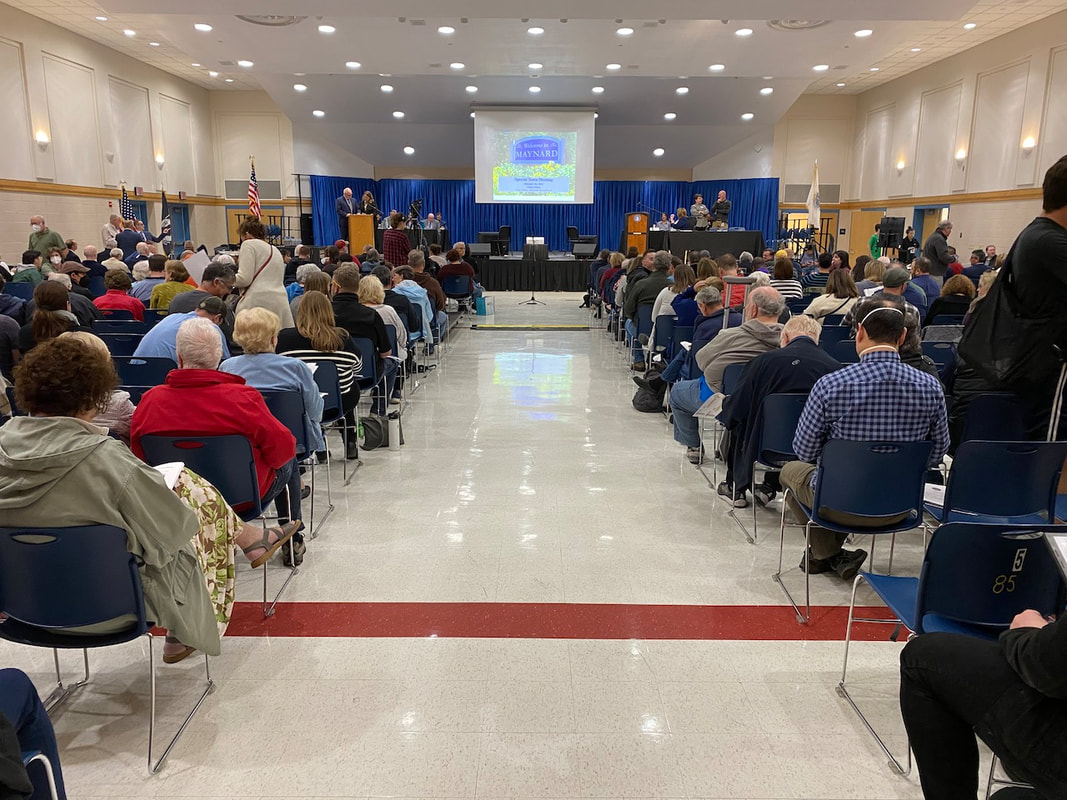




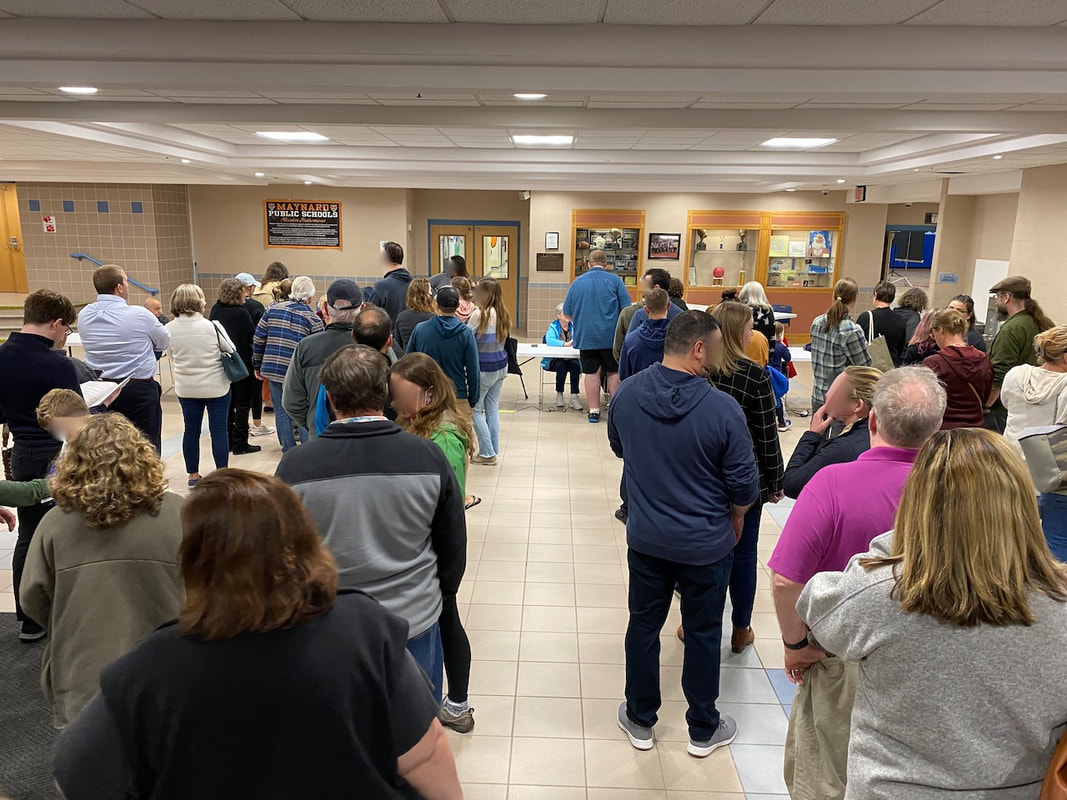
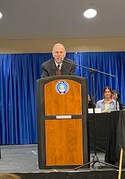
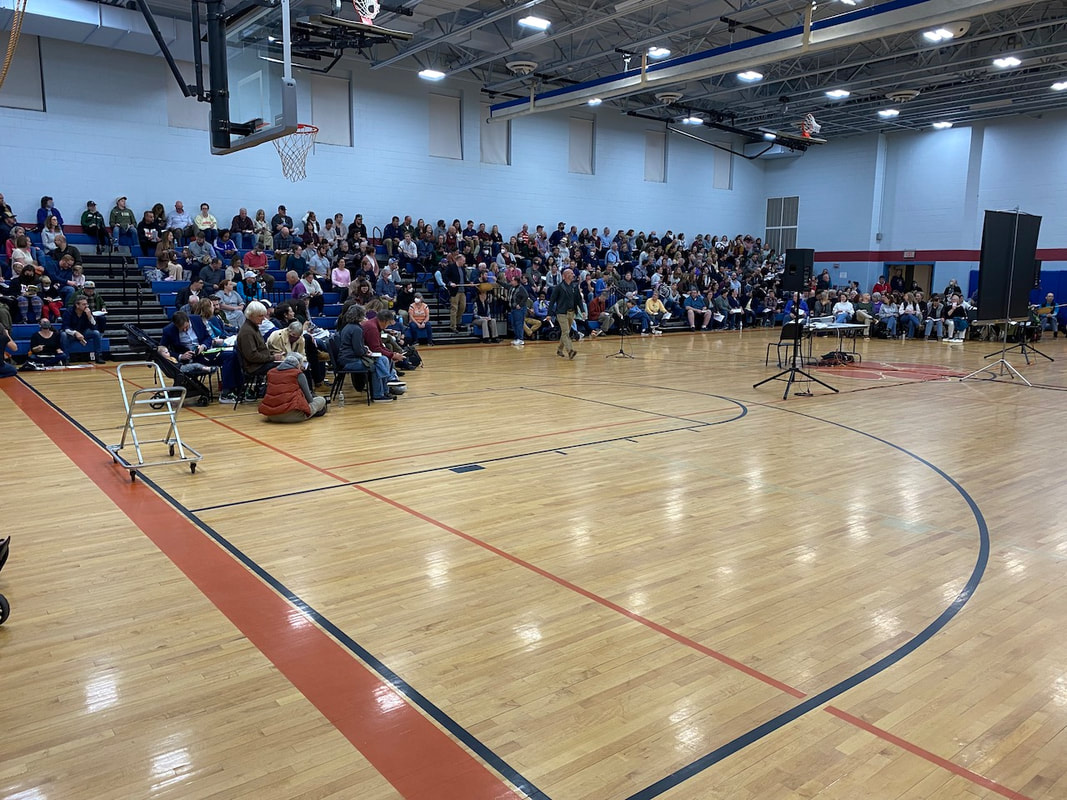
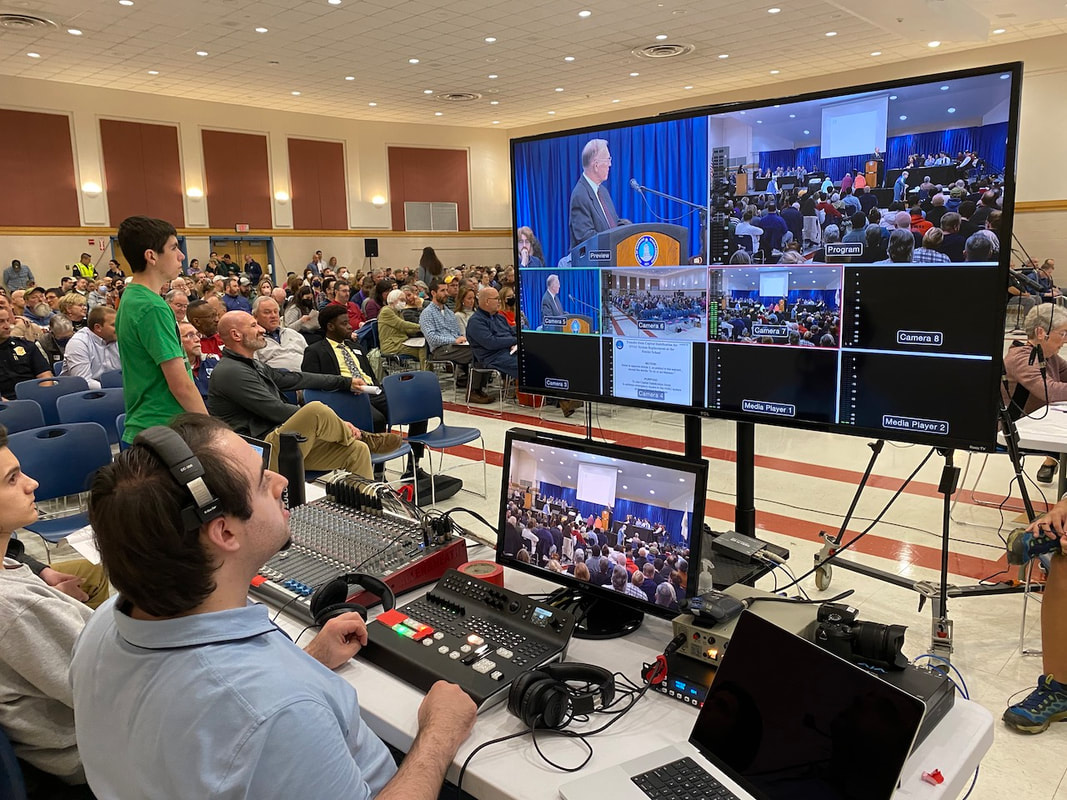
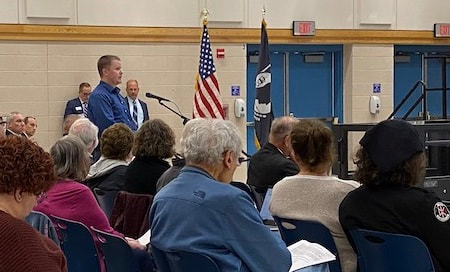
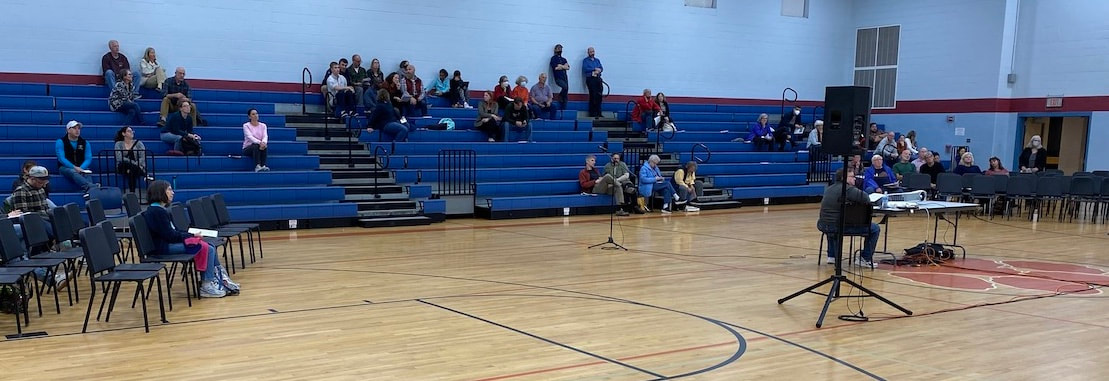
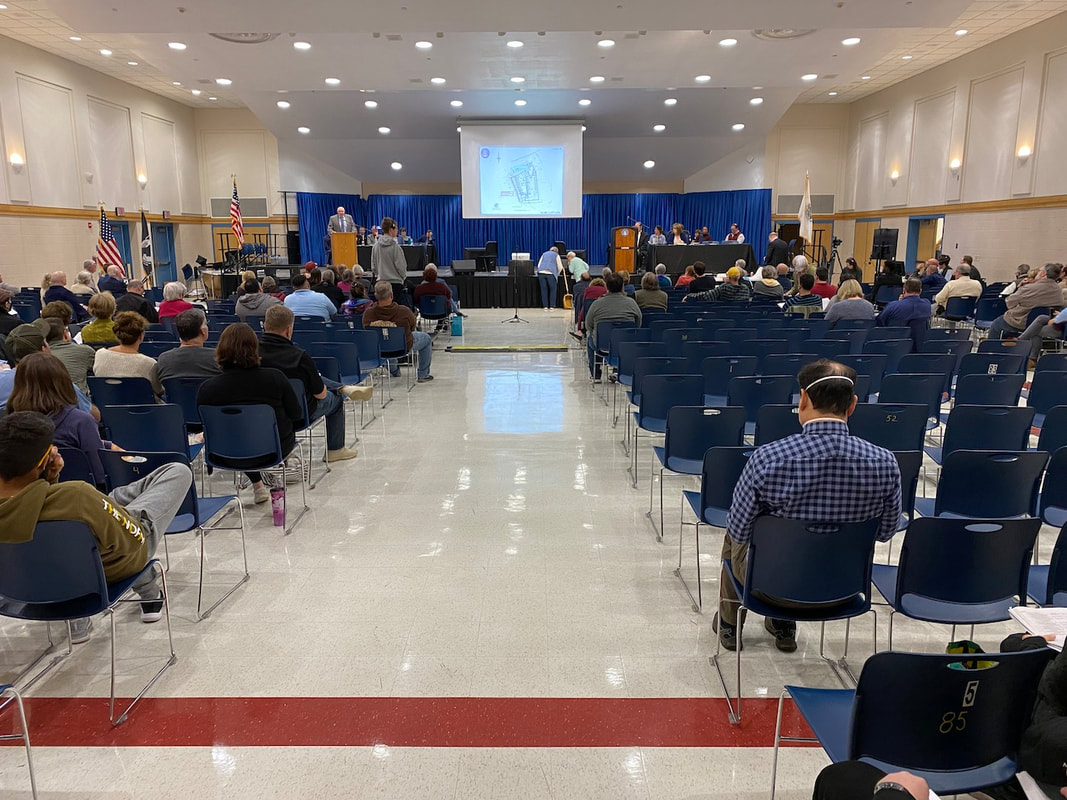
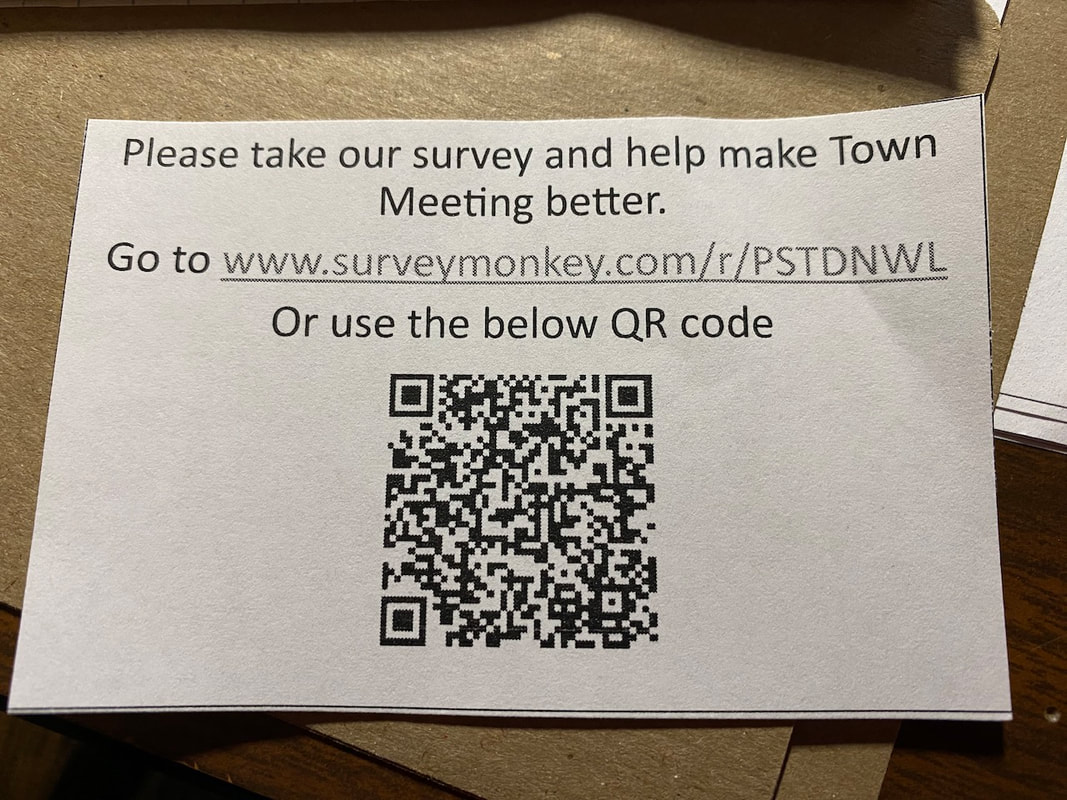
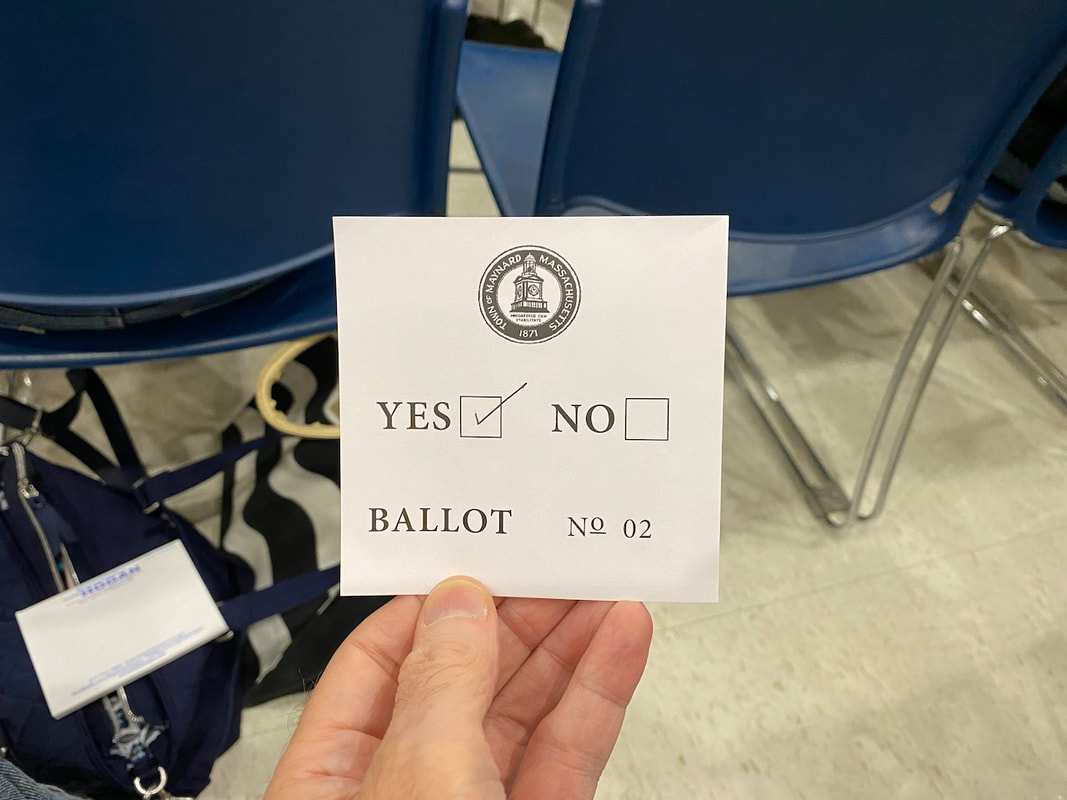
 RSS Feed
RSS Feed